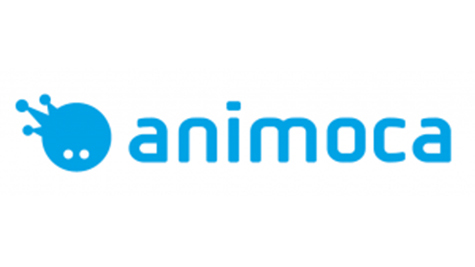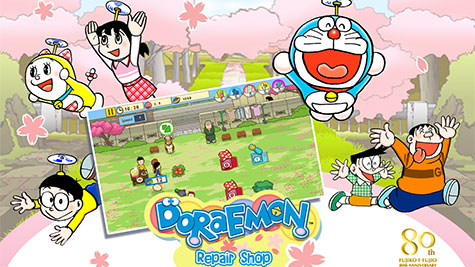David Kim provided interesting insight into the Southeast Asia game market in his session at Casual Connect USA 2014. “The biggest differentiating factor here is that over half [of gamers] is under 25, so these are all the future earners that are coming into the pipeline that we can market to,” he stated. “On a per person basis, it’s still much cheaper to market in any of these Southeast Asian countries, with the exception of maybe Singapore, but Singapore, again, is very, very small, but generally, you’ll get a lot more bang for buck for any of these markets.”
David Kim, CEO of Animoca, is continually impressed with the strong culture in the games industry, “I’ve always felt the games industry is a collaborative industry where people are willing to share ideas and best practices that work well, and not only discuss trends, but be an active participant in the trend itself. Everyone buys into the theory that a rising tide floats all boats, so they are willing to open up and be very transparent with what they have tried that has worked and what hasn’t worked so well.”
What is a Developer to do in a Hit-Driven Market?
Kim relates that Animoca was built around a hit-proof model; they operate a broad portfolio of diversified games so they do not have to rely on building that one big hit to sustain their businesses. He takes great satisfaction in the fact that the business has sustained steady growth over the long term, saying, “I’ve likened it to the whole ‘Moneyball’ theory. We have been focusing on hitting singles and doubles and getting on base. We continue to have hits that allow for a steady stream of runs. We’re not opposed to home runs, but that is not what we have been swinging for at every turn at bat.” This is what they set out to do, and their success is a major testament to that approach.
Kim also takes pride in the continued success of the whole Pretty Pet Salon series, which has become the standard for the ‘cute and cuddly’ game genre.
The business partners are now focusing on building up the company’s new Animoca Brands spin-off and using it as a vehicle to launch some of the best IP in the world. There are a many great brands that would make for wonderful games, and the company is invested in making it happen.
Within the next couple of years, Kim expects to see higher quality game products emerging, with hardcore games becoming more dominant as the depth of experience in mobile games reaches that of the hardcore experience. He also expects to see more emphasis on gaming for younger children as more children are given their own mobile devices. But the usual freemium model will not work for this audience, so, he asks, “How will these games be monetized?” Although there is no answer to this question yet, there is still great interest in games for children and in educational games.
Riding the Technology Curve
Among the valuable new technologies that have not received the notice they deserve, Kim includes the broad range of game controllers, from devices that attach to your tablet to sophisticated control systems like Kinect, TV enabled mobile devices, 3D/VR devices and displays, such as Oculus Rift, and interoperability of mobile game devices, computers, and consoles. He feels that as more and more products and ideas are developed, new markets will open up for them.
He believes the next wave in the field of gaming might involve gaming hardware and software attached to a smartphone, incorporating the smartphone into hardcore gaming, not as an auxiliary controller, but as an integral part of the experience.
As the power of CPUs and GPUs continues to increase, both as standalone and integrated components, even more powerful and efficient hardware and applications will become possible. Kim claims, “This advance in processing power will lead to greater versatility in our devices so that eventually we may stop thinking in terms of dedicated disparate machines like a smartphone, a personal computer, or a gaming console.”
According to Kim, The Internet of Things offers fascinating opportunities. Gaming may well end up setting the stage for the large-scale commercial application of the Internet of Things. Other exciting technologies include new game accessories that will allow the development of novel and better game experiences. He believes that soon enough games will support Android Gear and we may see virtual reality go main stream.
He has heard people talking about convergence for decades, and it has meant different things to different people and generations. In its latest iteration, convergence will likely encompass many physical technologies as well as many different types of gameplays, and it will all be connected. He insists, “It won’t be here this year or next year, but it is coming, and it will be very, very cool!”
Lofty Goals for Animoca
As CEO of Animoca, Kim is responsible for setting the overall direction of the company and managing its growth, so he is involved in many facets of the business. His work varies from day to day; on any given day he may be meeting or talking with potential distribution or monetization partners, evaluating a game to consider publishing it, or working with the design team to optimize the user experience. The company is currently discussing many strategic initiatives, including the recent spin-off of Animoca Brands, soon to be listed on the Australian Stock Exchange.
Animoca Brands develops and publishes branded games, as well as games developed by third parties. Publishing a game under Animoca Brands provides a publisher with access to effective distribution and marketing services, backed by their expertise in the global marketplace. Kim notes that now it is relatively easy to develop a new app, even a very good one; the difficulty lies in ensuring that the app gets sufficient visibility and traction to succeed. This is where Animoca Brands can help. As well, both Animoca Brands and Animoca offer consumers quality entertainment, ranging from famous IP games to RPGs, intense action, or more female friendly games.
Kim’s focus is on building both Animoca and Animoca Brands to stand among the biggest mobile developers and publishers in the industry, across the globe. Their mission includes helping other game developers publish and promote their apps. Animoca Brands helps developers through its publishing division; Animoca itself no longer has a publishing division, but they are working on a new service for developers.
Animoca will also be expanding their Pretty Pet Salon and Star Girl series, two of their biggest successes as a developer. Animoca Brands will continue to increase its portfolio of famous intellectual property brands, to bring their customers games based on their favorite characters.
Kim and his business partner, Yat Siu, have been working together for years; Animoca is their latest iteration. Recently, they have been joined by Robby Yung, who will lead Animoca Brands. They have been building games, launching online content and other types of services since the 1990s. By the time they started working on mobile games, they had already developed games for PC and consoles, including Xbox, Playstation, and Nintendo. However, Kim emphatically states, “There is no industry like the mobile games industry in terms of its change of pace and dynamism. Whatever is in flavor can and likely will change in a couple of months or even a few weeks. The constant learning process that is required to stay ahead of the market is exhilarating, and that’s what keeps us in it.”
All Work and No Play Would Make Mr. Kim a Very Dull Boy
The demands of Kim’s professional and personal life no longer leave him much time for gaming, so when he does play, it is a brief session on his smartphone or tablet. Obviously, he plays a lot of Animoca’s games, such as Star Girl, the MMORPG Ragnarok: War of Gods, and running games such as Astro Boy Dash and Panda Run. And, he reveals, “I play our title Thor, Champion of Asgard whenever I feel the need for a crushing defeat, after which I always go back to classic time management gameplay, like Doraemon’s Repair Shop or My Car Salon.”
He also tries out many of their industry friends’ games; he needs to be familiar with what others are doing. But with so little time available, he plays only enough to get a taste.
Kim also has little time for any interests outside of his work, so he participates vicariously by contributing to the passions of others, worthy causes that have taken on new life in the world of crowdfunding. He supports two former colleagues who are trying to save the rain forest. To check out the project, go to:
https://www.kickstarter.com/projects/topherwhite/rainforest-connection-phones-turned-to-forest-guar
He also supports a college friend who is a doctor trying to better children’s lives through both medicine and music. To find out more about this project, go to:
https://www.kickstarter.com/projects/2128707593/a-perfect-day-music-on-a-mission-to-help-kids-live/posts/914774













